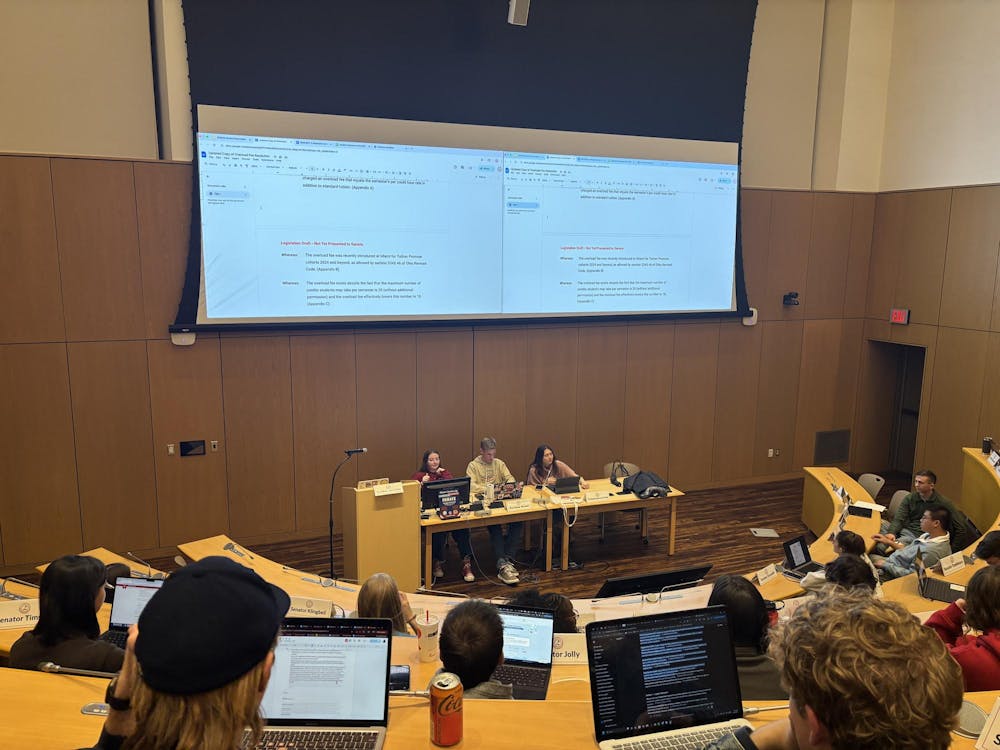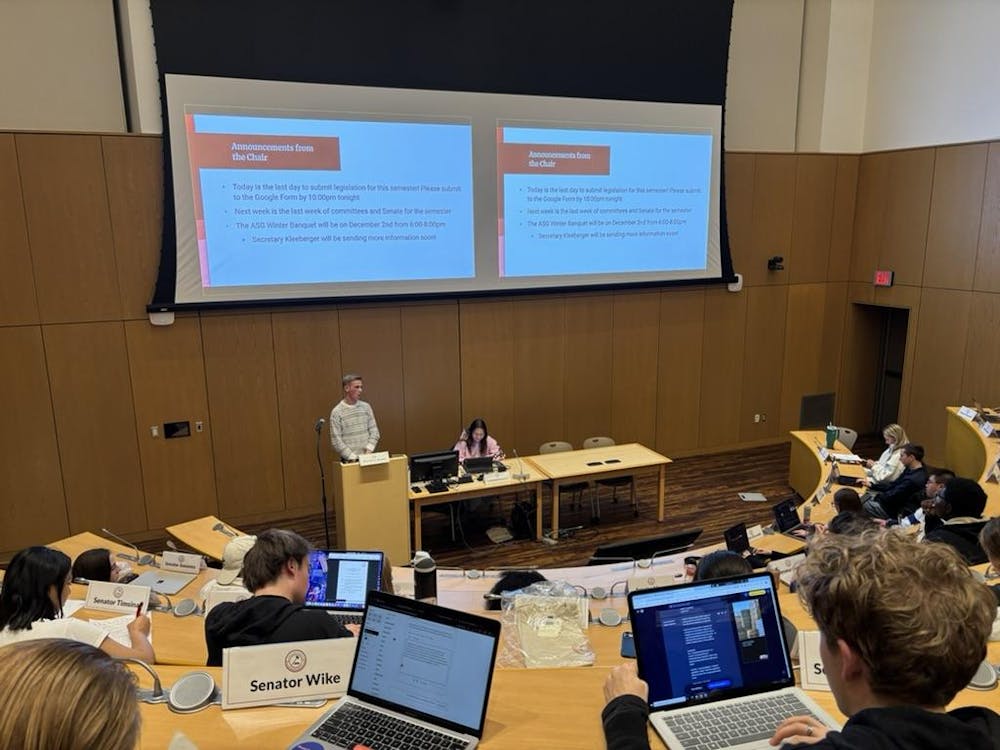The ASG senate voted unanimously last week to approve Sen. Mike Meleka's bill that officially supports of an increase in resident assistant compensation.
Currently, Meleka told the Senate, RAs are paid a flat stipend -- for first-year RAs, around $7,900 in gross pay per year -- that can be put towards school tuition or fees if needed. Their housing and meal costs are not covered. Under ASG's proposed plan, RAs would get waivers for their housing costs, meal plan costs, and residential fees, as well as a $1,300 stipend each year.
These numbers have been discussed and casually agreed upon with the Office of Residence Life, Meleka said.
Miami University's resident assistants are in the bottom 10 percent of RA compensations across similar universities, as noted by the Resident Assistant Benchmark Study done by Colleen Bunn, Assistant Director of Residence Life. University policy also dictates that RAs are not permitted to hold another on-campus job, so this could be their only source of income.
While an increase in RA compensation has been discussed among administrators, the student body is generally not sensitive to the issue. Meleka hopes that the passage of this bill will result in student support for the increase in compensation.
"One of the reasons I do not believe the compensation change has been previously encouraged by the students and may not have had a response from the students is due to the misconception that RA's are paid a high amount," Meleka said. "I think it is important to have this change occur because a RA is one of the first connections a student makes when they move into campus. The RA position has also been one of increasing work and expectations so for the pay to not follow this trend is something that in my opinion is unacceptable. The RA role has become one that can save a life so these individuals need to be valued at such."
The bill also supports rewarding returning RAs by adding a yearly raise: For each year that an RA returns, they're paid an additional $100, capped at $1,500.
This bill would only cost students $70 more added to their living costs. Currently $400 goes to residence life from student's residential costs, and Meleka revealed that not all of this money actually goes to residence life now.
If the administration chooses to accept ASG's proposal, students would see a $70 increase in their currently $400 "residence fee," paid by all students currently living in dorms.



